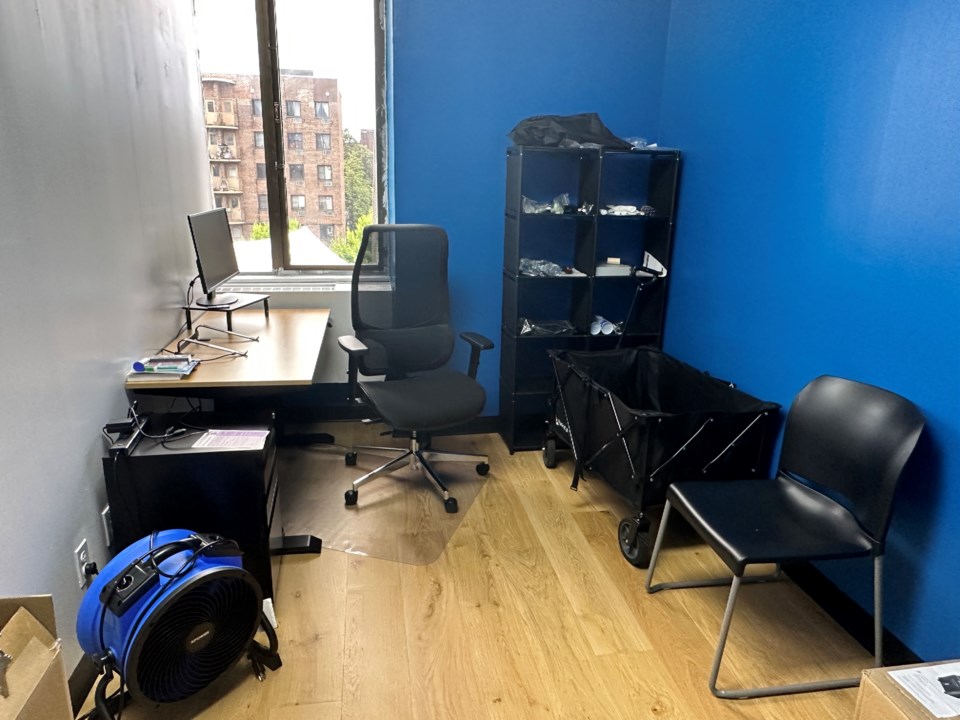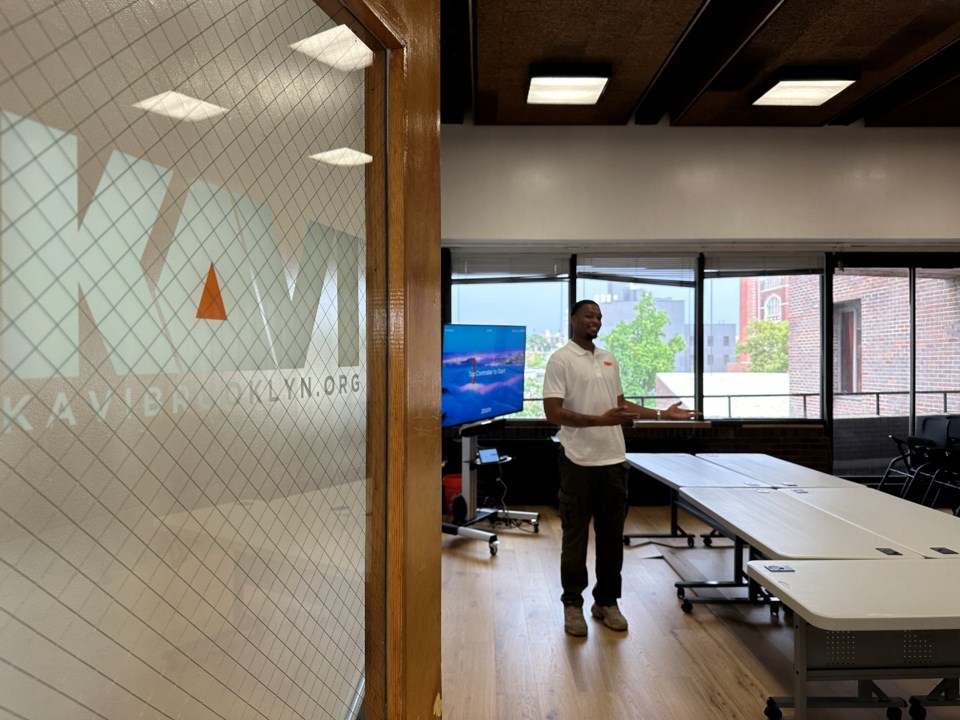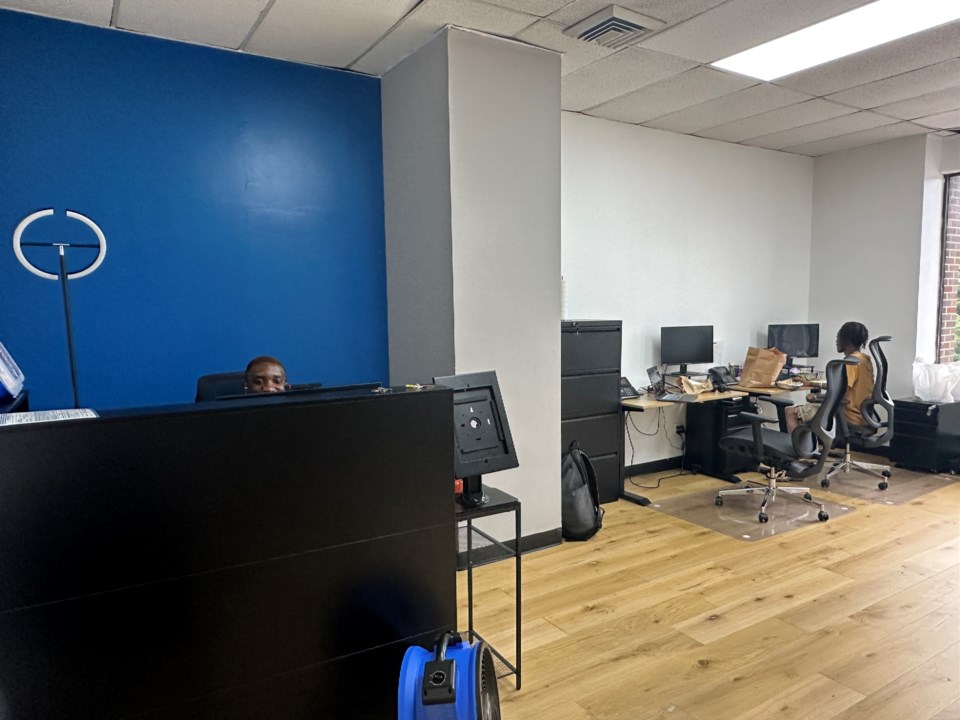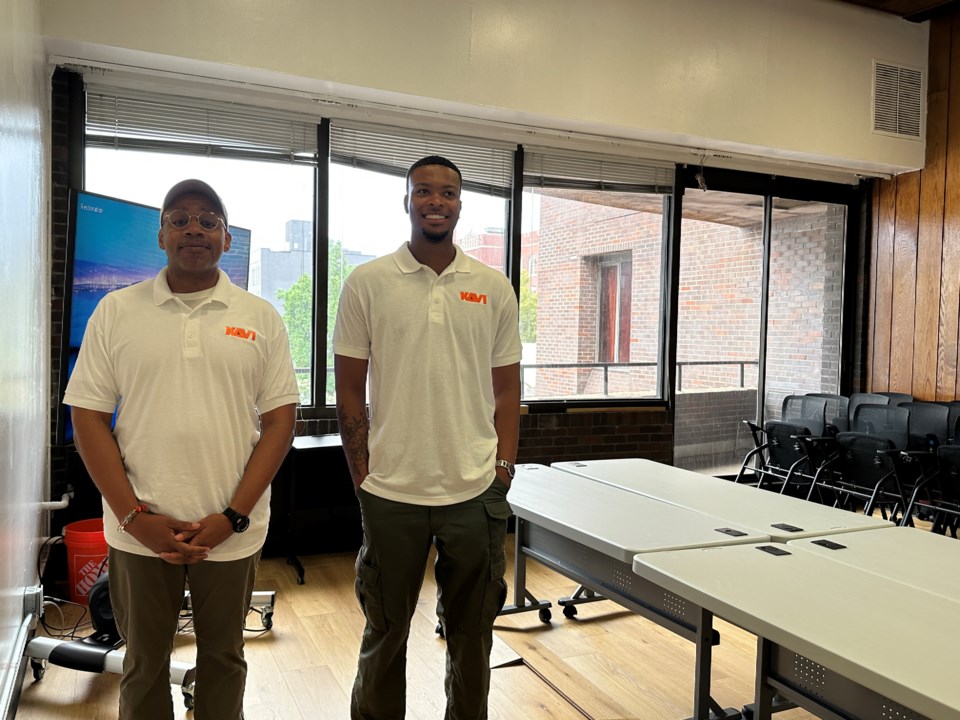A new healing center for survivors of crime opened in Brooklyn on July 18.
Pathways is located within the historic Bed-Stuy Restoration Corporation, and bills itself as a crime survivors assistance and violence prevention center for the borough. It is an expansion of the work of KAVI’s founder, the violence prevention advocate Dr. Robert Gore. His medical experience treating victims of violent crime inspired the launch of the nonprofit Kings Against Violence Initiative (KAVI) in 2009.
“Once you've been victimized, it's hard to go back to an institutionalized setting,” said Ramik Williams, co-executive director at Pathways. “So some folks don't want to go back to a hospital. They prefer some type of informal environment that allows them to have access to the same resources without having to check in at security.”

Pathways fulfills that need as a culturally-responsive liaison between the city’s efforts to provide services to violence survivors and those who may want support to navigate the system. Williams explained that people of color who are victims of crime sometimes internalize the incident and may be hesitant to reach out for the services that are available to them.
“We can change the idea that victimization is someone's fault, and more or less change it to victimization is something that someone can actually take agency over and change their lives so that it never happens again,” Williams said.
The program’s new space includes a large waiting room which doubles as a work area, two smaller offices for meeting with participants and a sizable conference room just down the hall. The conference room will be used for meetings and group therapy sessions, such as their Safety, Emotion, Loss and Future focus group.
Pathways’ peer-led group therapy session involves up to eight participants, supported by a social worker who helps to guide them through their emotions and the thought processes behind their actions, with the ultimate aim of improving their decision-making skills.
Referrals to Pathways come primarily from the hospital, where people in the emergency room are informed that the program can help them to better understand and access the assistance available to them through the city’s Office of Victim Services (OVS).

Some clients are referred from KAVI’s school and community-based programs as well, for instance whenever they seek to be connected to emergency funding. Participants can get funding for relocation, funerals, hospital bills, temporary housing and more.
James Peele, the program coordinator for Pathways, indicated that the program can also help qualifying clients to access a form of direct payments known as reimbursement funds through OVS.
“If the crime that you experienced causes you to be outside of work, they'll reimburse you a certain amount of money to help you make up for the paychecks that you didn't receive,” Peele said.
At Pathways, the staff’s goal is to become a trusted community staple, where folks know that they can even walk in off the street if they need services. The program recently partnered with the Brooklyn Psychotherapy Center, to facilitate behavioral support for individuals with chemical dependency or gambling addiction issues.
KAVI’s work to date encompasses community outreach, advocacy for patients with crime-induced traumatic injuries and youth development in local high schools.

Williams told BK Reader that the nonprofit’s engagement with students often involved easing police-induced trauma. Teens as young as 16 and 17 report being pulled over for no reason by the NYPD, stopped and frisked or physically assaulted. The students are able to do group therapy sessions through KAVI and to receive assistance with the court process, from finding adequate legal representation to connecting with a youth advocate who helps them make it to hearings on time.
“What I've learned is that when you decrease the barriers to young people and you give them autonomy, more often than not they choose the right thing, but it has to be consistent,” Williams said. “You have to be in their lives consistently.”


